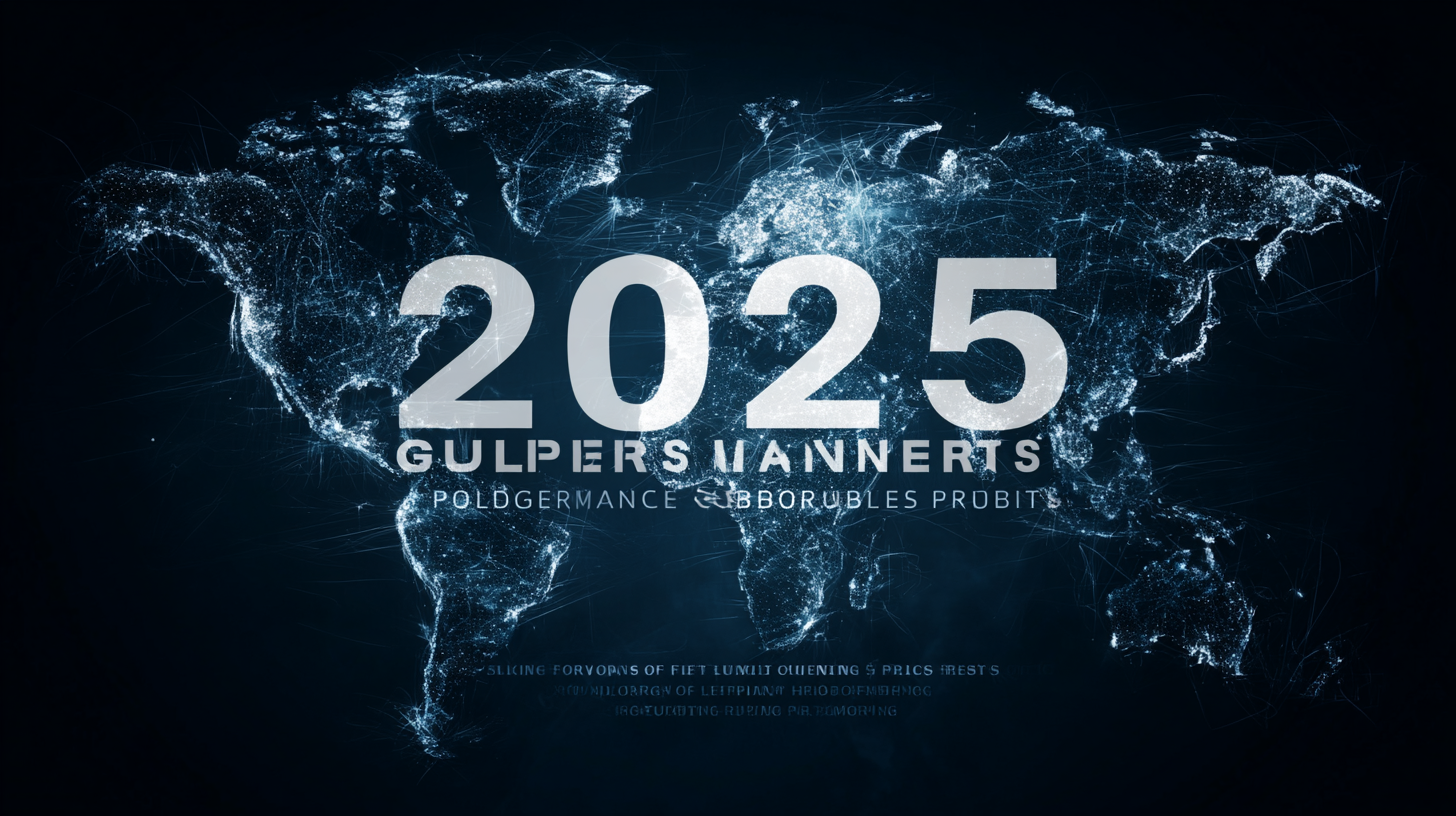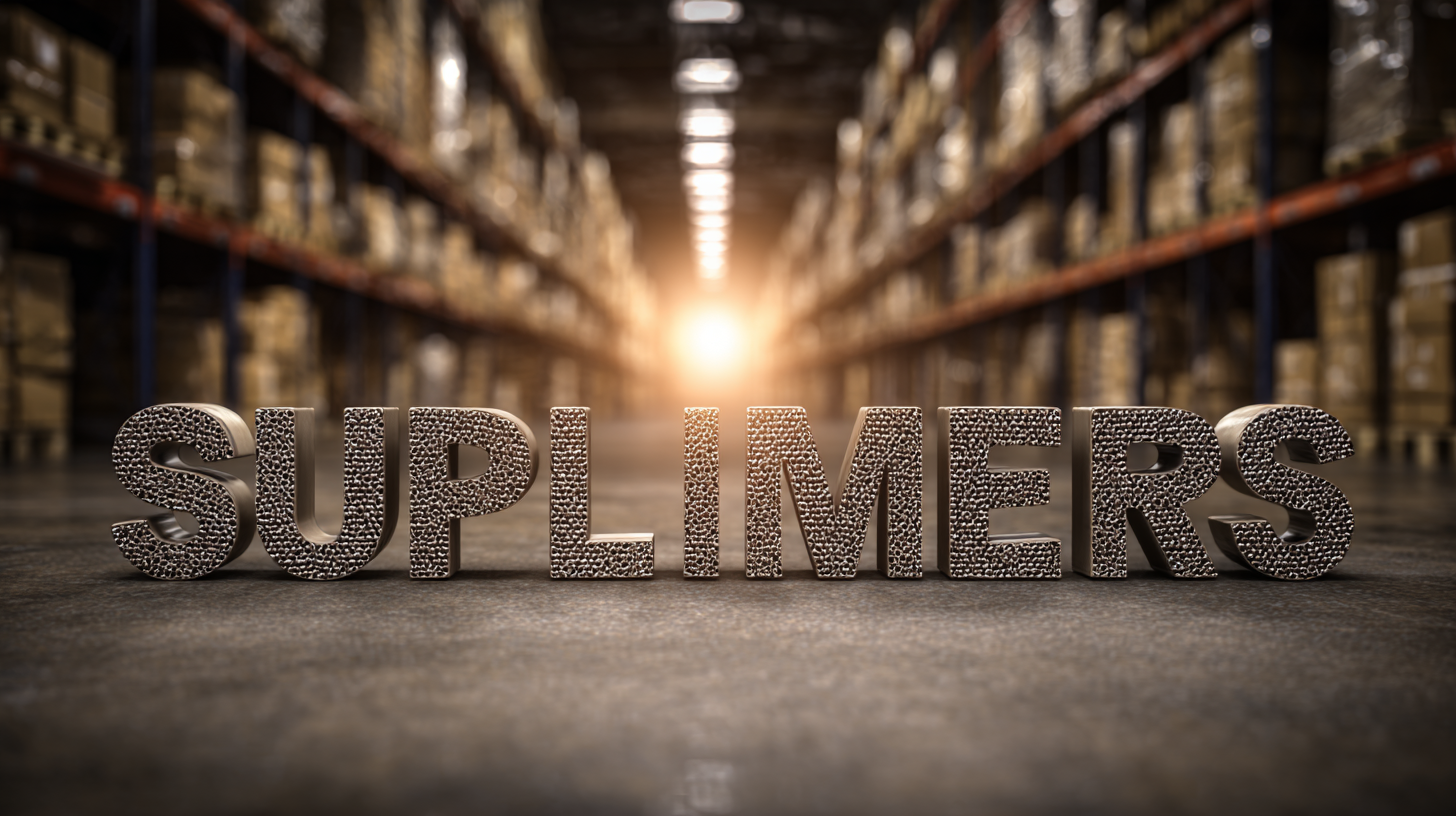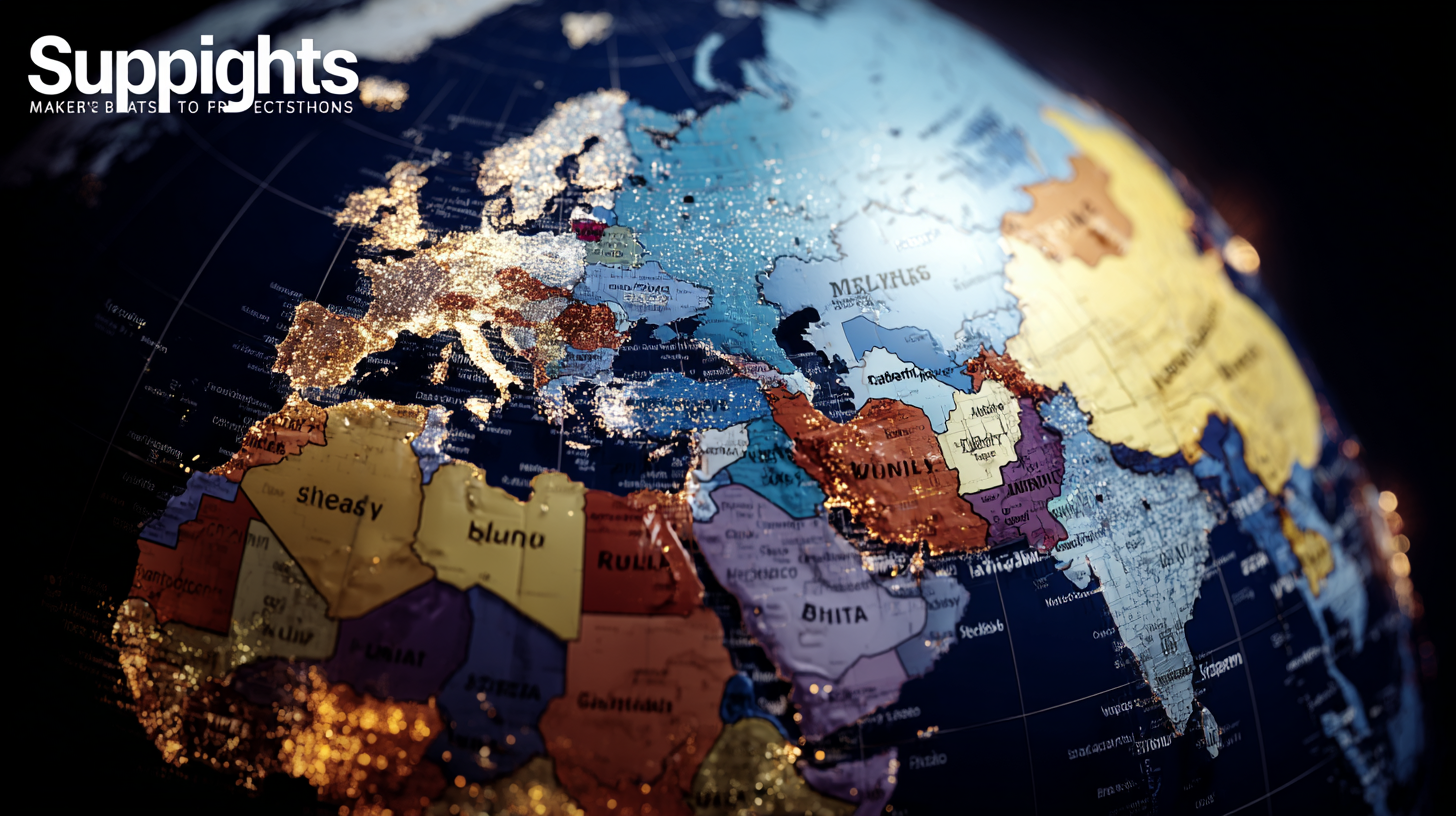
In today's increasingly interconnected global market, the ability to identify and collaborate with the right suppliers is essential for maximizing procurement efficiency and driving sustainable growth. According to a 2023 report by the International Suppliers Association, companies that strategically partner with high-quality suppliers can improve their overall operational performance by up to 25%. As we look toward 2025, the significance of well-established relationships with top-tier suppliers, especially from regions renowned for manufacturing excellence, such as China, becomes even more pronounced. Understanding the dynamics of supplier capabilities, market trends, and risk management will be crucial for businesses aiming to thrive in a competitive landscape. By leveraging data-driven insights and fostering strategic partnerships, organizations can enhance their supply chain resilience, ensuring they remain agile and innovative in the face of evolving global demands.

As we look ahead to 2025, emerging technologies are set to revolutionize global procurement practices, transforming how businesses identify and partner with suppliers. Artificial intelligence and machine learning, for instance, are redefining supply chain management by offering predictive analytics that allow procurement professionals to gauge supplier reliability and performance more accurately. These technologies enable companies to analyze vast amounts of data in real-time, assisting them in making informed decisions about their supplier base and identifying potential risks before they escalate.
Moreover, blockchain technology is gaining traction, enhancing transparency and traceability in procurement processes. By creating secure and immutable records of transactions, blockchain significantly reduces the chances of fraud and ensures compliance with international standards. As organizations increasingly prioritize sustainability and ethical sourcing, integrating blockchain can help verify that suppliers adhere to environmental regulations and labor practices. The convergence of these emerging technologies will not only streamline procurement operations but also foster stronger partnerships between businesses and their suppliers, paving the way for a more resilient global supply chain in 2025.
| Supplier Category | Emerging Technology Impact | Sourcing Challenges | Key Partnership Criteria | Future Trends |
|---|---|---|---|---|
| Manufacturing | Automation & AI Optimization | Capacity Limitations | Sustainability Commitment | Increased Local Sourcing |
| Logistics | Blockchain for Transparency | Rising Freight Costs | Reliability and Speed | Smart Supply Chains |
| Raw Materials | Materials Innovation | Regulatory Restrictions | Quality Assurance | Circular Economy Practices |
| Technology Services | Cloud Computing & IoT | Cybersecurity Concerns | Technical Expertise | AI-Driven Solutions |
| Consulting | Data Analytics | Market Volatility | Proven Track Record | Focus on Innovation |
 In 2025, the global procurement landscape is evolving rapidly, making it essential for companies to effectively evaluate supplier capabilities and reliability. According to the latest Deloitte Global Procurement Survey, 70% of organizations prioritize supplier performance assessment as a critical strategy to mitigate risks associated with global supply chains. This underscores the need for a structured approach in identifying potential partners who can consistently deliver quality products and services.
In 2025, the global procurement landscape is evolving rapidly, making it essential for companies to effectively evaluate supplier capabilities and reliability. According to the latest Deloitte Global Procurement Survey, 70% of organizations prioritize supplier performance assessment as a critical strategy to mitigate risks associated with global supply chains. This underscores the need for a structured approach in identifying potential partners who can consistently deliver quality products and services.
To thoroughly evaluate suppliers, businesses should implement a comprehensive scoring system that takes into account various factors such as financial stability, production capacity, and previous performance metrics. A recent report by McKinsey highlights that companies leveraging data analytics to assess supplier reliability have seen a 20% increase in overall procurement efficiency. Additionally, conducting regular audits and gathering feedback from previous clients can provide invaluable insights into a supplier's operational reliability and responsiveness. This multifaceted evaluation strategy will not only enhance supplier selection but also foster long-term partnerships essential for navigating the complexities of global markets.
Building effective partnerships in global procurement revolves around strong communication and collaboration. To ensure that both parties are aligned, it’s crucial to establish clear communication channels. Regular check-ins and updates can help identify potential issues early and foster a sense of trust. Utilizing collaboration tools can streamline this process, making it easier to share information, track orders, and resolve problems swiftly.

Tips: Encourage open dialogue and active listening among partners. Creating a culture where all team members feel comfortable sharing their insights can lead to innovative solutions and improved project outcomes. Additionally, setting shared goals can strengthen the bond and encourage collective problem-solving.
Another key aspect of successful partnerships is understanding the cultural differences that may influence communication styles. Being aware of these nuances can enhance collaboration and prevent misunderstandings. Tailoring your approach to fit the preferences of your suppliers can lead to more productive interactions.
Tips: Invest time in building cultural awareness through training and resources. Recognizing and respecting each partner's communication style will create a more harmonious working relationship, ultimately benefiting the procurement process.
Sustainability and ethical sourcing have become critical factors in supplier selection, especially as global procurement strategies evolve in response to consumer demand and regulatory pressures. According to a 2022 report by the Sustainable Purchasing Leadership Council, 85% of supply chain leaders prioritize sustainability when selecting suppliers, reflecting a shift towards responsible sourcing. This trend is not merely a compliance measure; it’s a strategic initiative that can enhance brand reputation and drive customer loyalty. Customers are more inclined to choose brands that align with their values, as indicated by the Nielsen Global Corporate Sustainability Report, which found that 66% of consumers are willing to pay more for sustainable brands.
Incorporating ethical considerations within supplier selection also mitigates risks associated with social responsibility. A 2021 report by the World Economic Forum highlighted that companies with strong ethical sourcing practices experienced 30% fewer supply chain disruptions. This suggests that forging partnerships with suppliers who uphold ethical standards not only fosters a sustainable supply chain but also bolsters operational resilience. By prioritizing suppliers who demonstrate a commitment to sustainability and ethical practices, businesses can create long-term value and align their operations with emerging global standards in procurement.
In the rapidly evolving landscape of global procurement, leveraging data analytics has become essential for organizations aiming to enhance their supplier selection process. By harnessing robust data analytics tools, businesses can gain deeper insights into supplier performance, market trends, and risk factors, enabling them to make more informed decisions. Through predictive analytics, companies can analyze historical data and forecast future supplier capabilities, ensuring that they partner with the most reliable and efficient suppliers.
Moreover, data analytics facilitates the identification of potential suppliers by examining key performance indicators (KPIs) such as delivery times, quality consistency, and pricing structures. Organizations can utilize advanced algorithms to sift through massive datasets, pinpointing suppliers that align with their procurement strategies. This analytical approach not only streamlines the supplier evaluation process but also fosters strategic partnerships, enhancing overall supply chain resilience. As a result, businesses are better equipped to navigate complexities in the global market, driving sustainable growth and innovation through data-driven procurement decisions.

